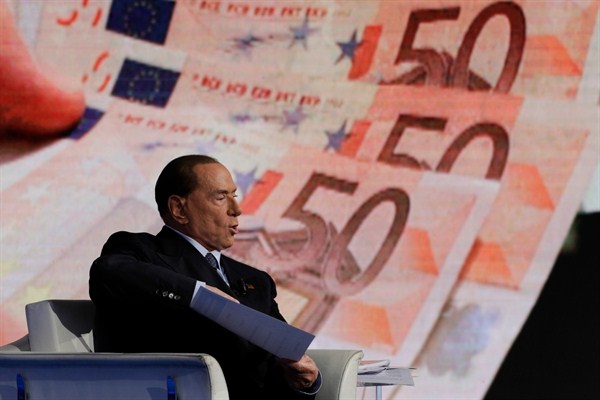Italians go to the polls this Sunday in a climate of uncertainty, amid fears, not unfounded, that their country’s political stability is at stake.
Three main political forces are contending for power: On the right, a shaky alliance of former Prime Minister Silvio Berlusconi’s Forza Italia and two far-right parties, the League and the Brothers of Italy; the maverick and populist Five Star Movement; and the governing, center-left Democratic Party. They are polling roughly in that order, followed by Free and Equal, a left-wing coalition of disgruntled Democratic Party veterans who broke away in 2017. But 30 percent of the electorate is still undecided. Many frustrated, disillusioned voters simply won’t go to the polls.
The uncertainty is compounded by the electoral system. Italy will vote under a new law that assigns two-thirds of the seats in both chambers of parliament by proportional representation and one-third of the seats through single-member constituencies. This partial return to a first-past-the-post system should favor the right in the north and parts of the south. As a result, the League, which has secured many candidates in its northern stronghold, will likely win a disproportionately high number of seats. What nobody knows is how much tactical voting will influence the outcome in the constituencies in central or southern Italy. Many voters will vote against parties they particularly dislike, rather than for a party they prefer, but nobody knows how widespread this will be.

